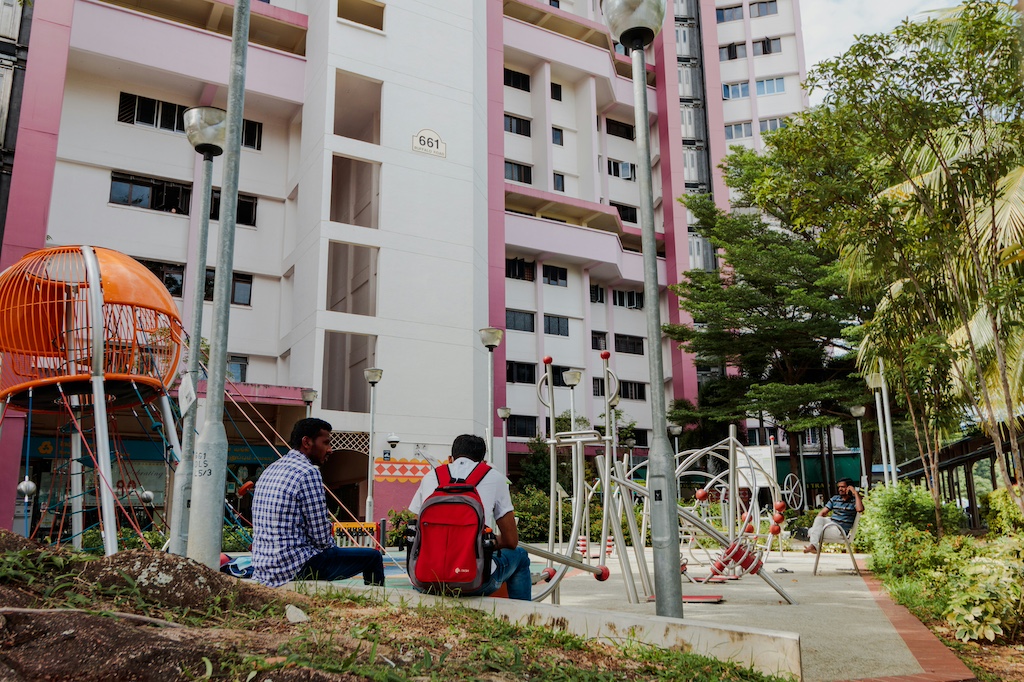The Foreign Worker Quota, also known as the Dependency Ratio Ceiling (DRC), is a policy that was implemented by the Singapore government to regulate the number of foreign workers that companies can hire. It aims to promote a balance between local and foreign labor in the Singaporean workforce, where citizens are able to find gainful employment and businesses still have access to international talent.
This is very important in specialized sectors such as healthcare, hospitality, and technology where there may be a shortage of skilled local workers.
How Does the Foreign Worker Quota Work?
The Foreign Worker Quota requires all companies in Singapore to maintain a certain ratio of local and foreign employees.
As guidelines currently stand, employees are considered ‘local’ in quota entitlements if they are a Singaporean citizen or Permanent Resident who receives a Local Qualifying Salary (LQS) of at least $1,400 per month. Individuals within the aforementioned category count as one domestic worker, while those who are also Singaporean or hold Permanent Resident status and make at least half the LQS count as 0.5 of a domestic worker.
There are some cases where a worker won’t be recognized as 1.0 of a domestic worker in quota entitlement calculations; individuals who make less than 0.5 LQS are not counted at all, owners of a partnership or sole proprietorship, and employees who work for three or more employers and collect salary and CPF don’t count towards the total. Employment Pass (EP) holders are also taken out of the workforce total calculation because they are not considered part of the local workforce.
On the other hand, Foreign Domestic Workers (FDWs) are defined as individuals who are hired to work in households and perform domestic chores such as cleaning, cooking, taking care of children or
The Ministry of Manpower (MOM) determines how many foreign employees can be hired by a company by first assessing its existing number of local employees. This information is sourced from the company’s Central Provident Fund account. Once the number of local employees has been determined, MOM then calculates the international worker quota based on factors such as the company’s industry, size, and location.
What Are the Foreign Worker Quota Requirements Per Sector?
The maximum number of foreign workers allowed per sector varies depending on the type of industry. In the construction and process sectors, for every local employee earning above $1,400 per month, seven foreign workers are allowed. This means that if a company in the construction sector has 100 local employees earning above $1,400 per month, they are allowed to hire up to 700 foreign workers. Similarly, in the marine shipyard industry, for every local employee earning above $1,400 per month, 3.5 foreign workers are allowed.
In the manufacturing sector, the ratio is slightly lower at 1.5 foreign workers for every local employee earning above $1,400 per month. Companies in the services sector have the lowest foreign worker quota at 0.538462 workers for every local employee earning above $1,400 per month.
It’s worth noting that Foreign Worker Quotas can also change depending on the status and citizenship of the foreign worker. Singapore has a Work Permit Quota for foreign workers from specific countries, such as China and India, applying for jobs in certain sectors. This is to ensure that there is a diverse range of nationalities represented in the workforce.
Employers are required to meet certain conditions before hiring foreign domestic workers. These include paying a monthly levy, providing suitable accommodation for the FDW, and purchasing appropriate insurance coverage.
Foreigners, on the other hand, are expected to meet several stringent eligibility requirements pertaining to age, educational or professional qualifications, employment experience, and criminal status before they can be granted a work permit.
What Are the Penalties for Exceeding the Foreign Worker Quota In Singapore?
Employers in Singapore who exceed the Foreign Worker Quota may face penalties from the Ministry of Manpower. These penalties can include fines, suspension or revocation of work permits or S Passes, and a ban on hiring new foreign workers for a period of time.
Initially, if an employer exceeds their quota entitlement, they will see a negative balance on WP Online. This means that they have more foreign workers than their allowed quota. In order to resolve this issue, the employer may need to cancel any excess work permits or S Passes and bring their balance back within the allocated quota.
Failure to do so in a timely manner can result in the revocation of excess work passes and a six-month ban on hiring new foreign workers.













